15 Best Books About Empathy For 2024
15 Best Books About Empathy For 2024
In the bustling world we inhabit, where technology often overshadows human connection, the art of understanding and sharing the feelings of another comes across as a beacon of hope. It’s no wonder that a wealth of literature dedicated to fostering this profound sense of connectiveness – empathy – finds its way onto the shelves of eager readers and seekers year after year. The best books about empathy not only educate us on the cognitive processes behind empathy but also deeply immerse us in the experiences of others, bridging divides and building communal bonds. With a multitude of titles to choose from, navigating this sea of knowledge can be daunting, yet immensely rewarding when we discover those transformative works that resonate with our souls.
Key Points:
- The best books about empathy offer deep insights into human emotions and connections, fostering compassion and understanding.
- Each book on the curated list is chosen based on literary awards, critical acclaim, and reader testimonials, ensuring a transformative reading experience.
- Empathy books cater to various audiences, from spiritual seekers to psychology enthusiasts, offering diverse perspectives on empathy and human relationships.
- Children’s empathy books use engaging stories and vibrant illustrations to teach important life lessons about kindness, diversity, and understanding.
- Reading about empathy in literature enhances emotional intelligence, expands perspectives, and nurtures a more compassionate community.
- Books on empathy serve as valuable tools for learning and developing empathy, allowing readers to immerse themselves in different experiences and emotions.
- By exploring empathy through literature, readers can deepen their connections with others, cultivate compassion, and gain a deeper understanding of the human experience.
Drawing from my experience as a seasoned book curator, I’ve ventured to bring together a selection of compelling reads for 2023. These aren’t just any books; they are works that have proven time and time again to stir the hearts, minds, and even actions of their readers. Each title has been chosen with careful consideration of literary awards, sales figures, critical acclaim, and yes, reader testimonials, ensuring a lineup that promises to engage, enlighten, and possibly even change lives.
Whether you’re a voracious reader constantly on the lookout for your next page-turner or someone seeking to deepen their understanding of the human condition, this curated list is for you. Let’s dive into the world of empathy, exploring stories and texts that aim to teach us how to listen, feel, and ultimately, connect more profoundly with those around us. After all, in a world that could use a little more understanding, these books may just be the guiding light we need.
Discover the 15 Best Books About Empathy For 2024
In preparing this curated collection of the 15 best books about empathy for 2024, every effort has been made to include a range of narratives that speak to various experiences, cultural backgrounds, and age groups. From the intricate workings of our emotional intelligence to the gentle guiding words aimed at the young and budding minds, this list is a testament to the power of literature to evoke empathy. Each book serves as a window to worlds both similar and distinct from our own, offering insightful lessons in understanding, kindness, and the sheer importance of being there for one another. So, let’s embark on a journey of discovery, where each page turned adds another layer to our empathetic souls.
1. Lovingkindness: The Revolutionary Art of Happiness by Sharon Salzberg
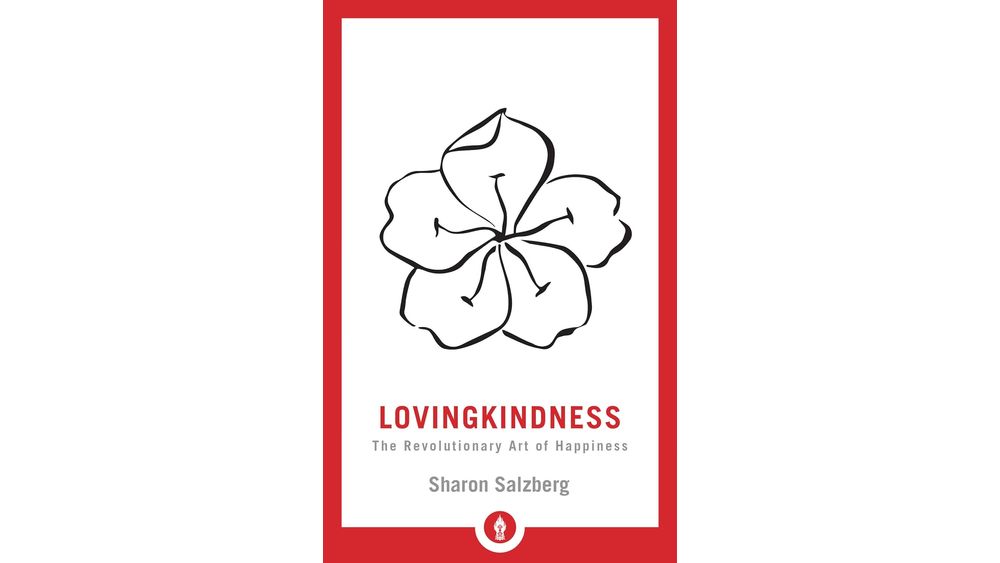
“Lovingkindness: The Revolutionary Art of Happiness” by Sharon Salzberg is a timeless exploration of how loving kindness can transform our lives. Through a blend of personal anecdotes, Buddhist psychology, and practical exercises, Salzberg invites readers into a world where empathy and self-love forge the path to inner peace and happiness.
Pro:
- The book is infused with deep, thought-provoking insights drawn from Buddhist teachings, resonating with readers seeking spiritual depth in their journey towards empathy.
- Salzberg masterfully combines personal stories with teachings, making the concepts of lovingkindness and compassion accessible and relatable.
- Readers will find practical exercises that invite them to experience the transformative power of lovingkindness, fostering both self-compassion and empathy for others.
Contra:
- Those not interested in Buddhist psychology or spirituality might find the book less engaging or relevant to their search for knowledge on empathy.
- The emphasis on personal anecdotes and spiritual teachings might divert attention from more scientific or research-based insights on empathy.
- Readers looking for a quick-fix solution to develop empathy might find the book’s focus on inner work and practice to be daunting.
I recommend this book to you if:
- You are on a spiritual journey and looking for ways to integrate empathy into your daily life.
- You appreciate deep, philosophical insights accompanied by practical exercises.
- You are open to exploring Buddhist concepts as a means to foster self-compassion and empathy for others.
2. Man’s Search for Meaning by Viktor Frankl
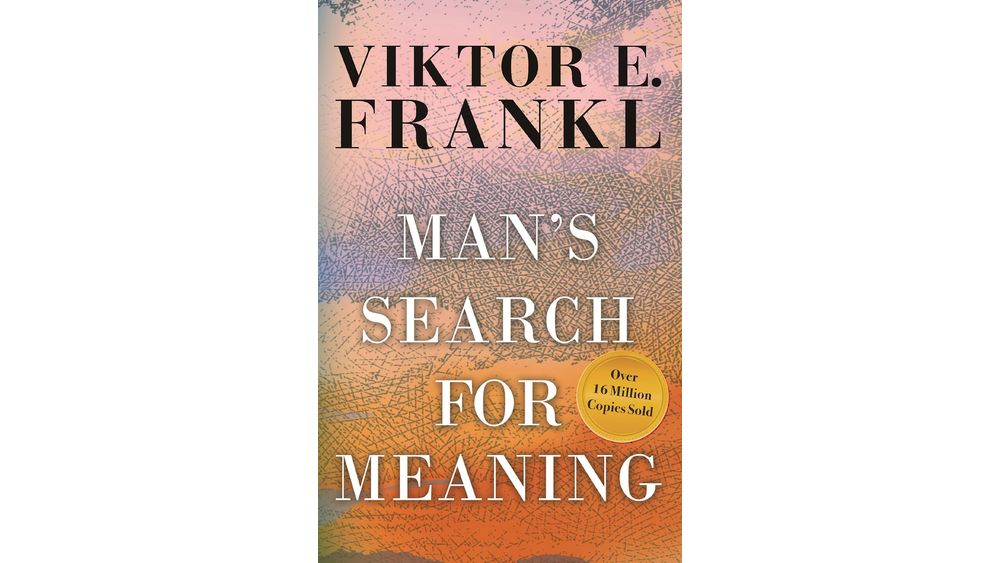
“Man’s Search for Meaning” by Viktor Frankl takes the reader on a profound journey of personal transformation within the darkest times of human history. Through Frankl’s heart-wrenching experiences in Auschwitz and his exploration of the human condition, we are invited to consider the power and resilience of the human spirit. This book offers a unique lens into how empathy and understanding can emerge from suffering and how meaning can be found in the face of unimaginable loss.
Pro:
- Provides deep insights into human psychology and the capacity for resilience.
- A historic account that bridges personal narrative with broader existential questions.
- Inspires readers to find meaning in their own challenges, fostering inner growth and empathy.
Contra:
- Some readers may find the historic and psychological depths challenging.
- The graphic details of concentration camp experiences may be emotionally taxing for some.
- The philosophical and existential themes may not resonate with all readers seeking practical advice.
I recommend this book to you if:
- You’re fascinated by psychology and history.
- You appreciate deep reflections on human nature and resilience.
- You’re seeking inspiration to overcome personal adversities.
3. Born for Love: Why Empathy is Essential and Endangered by Bruce D. Perry and Maia Szalavitz
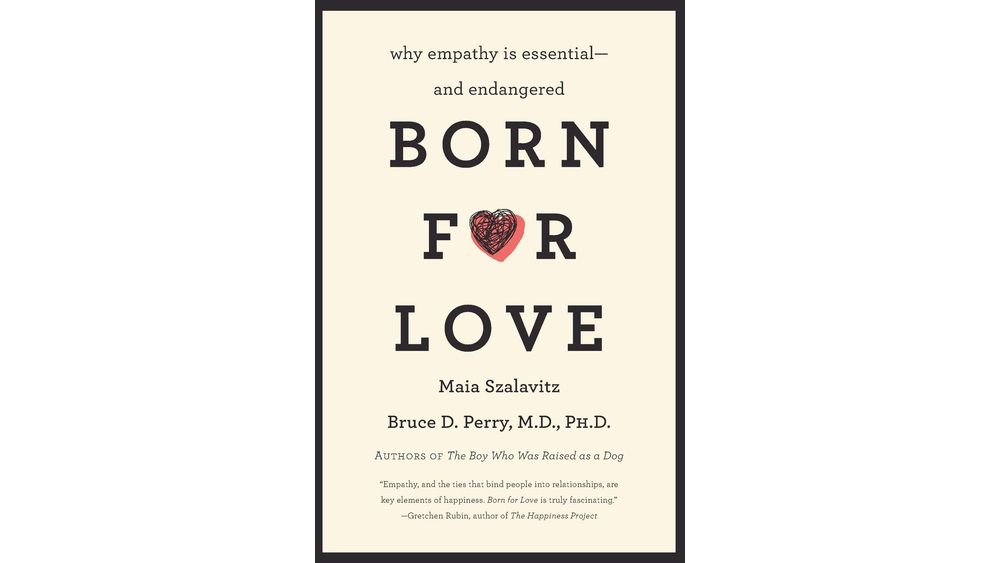
“Born for Love: Why Empathy is Essential and Endangered” delves into the critical role of empathy in human development and societal health. Through compelling stories of children affected by trauma, Perry and Szalavitz explore how loving relationships shape the brain and an individual’s ability to connect with others. This book weaves together neuroscience and human stories to argue for empathy’s crucial place in fostering a compassionate society.
Pro:
- Offers a unique blend of neuroscience and personal narratives to highlight empathy’s importance.
- Provides insightful solutions for addressing lack of empathy and nurturing it in individuals and communities.
- Accessible and compelling writing that connects with readers on both an emotional and intellectual level.
Contra:
- The scientific and clinical discussions may be dense for some readers.
- Some stories may evoke strong emotional responses, which could be challenging for sensitive readers.
- The book’s focus on early childhood intervention may feel less relevant to individuals seeking to improve adult relationships.
I recommend this book to you if:
- You’re interested in psychology and neuroscience.
- You believe in the transformative power of empathy.
- You value human stories as a lens to understand complex topics.
4. The War for Kindness: Building Empathy in a Fractured World by Jamil Zaki
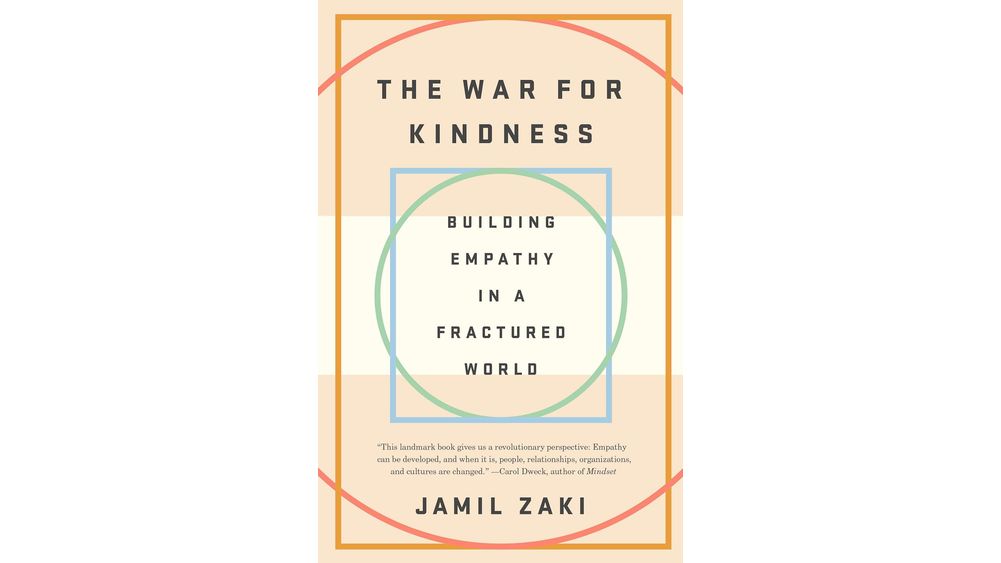
In “The War for Kindness: Building Empathy in a Fractured World,” Jamil Zaki presents an invigorating perspective on empathy as a transformable and impactful skill. Through a rich tapestry of scientific research, impactful stories, and personal reflections, Zaki argues that empathy is a crucial force in mending the divides in our increasingly fragmented world. This book is not only deeply informative but also a call to action, inspiring readers to cultivate empathy in their lives and communities.
Pro:
- Combines cutting-edge scientific insights with compelling human stories, making the concept of empathy relatable and actionable.
- Covers a wide range of applications for empathy, from personal relationships to global issues, demonstrating its far-reaching impact.
- Accessible and engaging prose that reaches out to a broad audience, encouraging readers to reflect on their own empathetic abilities.
Contra:
- The broad scope of the book might overwhelm readers looking for more focused advice on empathy.
- Readers seeking a straightforward self-help guide might find the lack of direct, step-by-step instructions less satisfactory.
- The emphasis on stories and qualitative data might not satisfy those looking for more quantitative, empirical evidence.
I recommend this book to you if:
- You’re interested in the science of human behavior and emotions.
- You are looking for inspiration to make a positive change in your community or personal life.
- You value stories of personal transformation and societal change.
5. The Drama of the Gifted Child: The Search for the True Self by Alice Miller
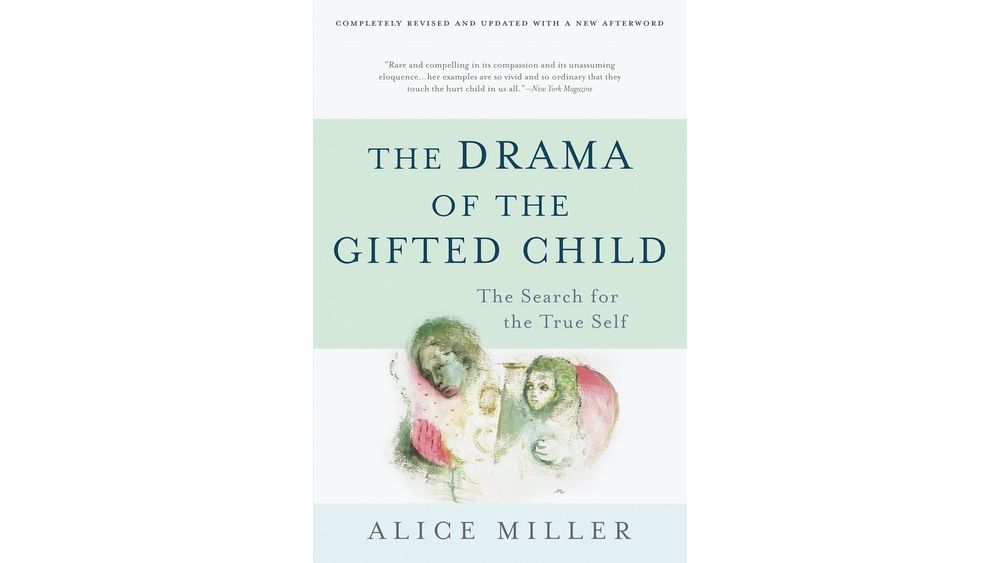
Alice Miller’s “The Drama of the Gifted Child” delves deeply into the intricate landscape of childhood trauma and its long-term effects on adults, especially parents. The book eloquently explores how unaddressed traumas manifest in various aspects of adulthood, particularly in how individuals parent, urging a profound reflection on the cyclical nature of emotional neglect and abuse. Miller’s assertion that our unexamined pains inevitably find their way out, often at the expense of our children, serves as both a cautionary tale and a beacon of hope for breaking these cycles through self-awareness and healing.
Pro:
- Offers a deep psychological analysis of how childhood experiences shape adult behaviors, particularly parenting styles.
- Encourages self-reflection and recognition of one’s own childhood wounds, fostering personal growth and healthier relationships.
- Emphasizes the importance of understanding and healing from past traumas to prevent the perpetuation of harmful cycles.
Contra:
- The writing style can be challenging due to long sentences and complex ideas, possibly making it a difficult read for some.
- Focuses heavily on parenting, which might not resonate with non-parents or those looking for a broader exploration of empathy.
- It might evoke intense emotions or be triggering for individuals with unresolved childhood traumas.
I recommend this book to you if:
- You are introspective and willing to explore the depths of your emotional history.
- You’re interested in the psychological aspects of parenting and the generational transmission of trauma.
- You seek healing and understanding in your personal growth journey.
6. Leading with Empathy: Understanding the Needs of Today’s Workforce by Gautham Pallapa
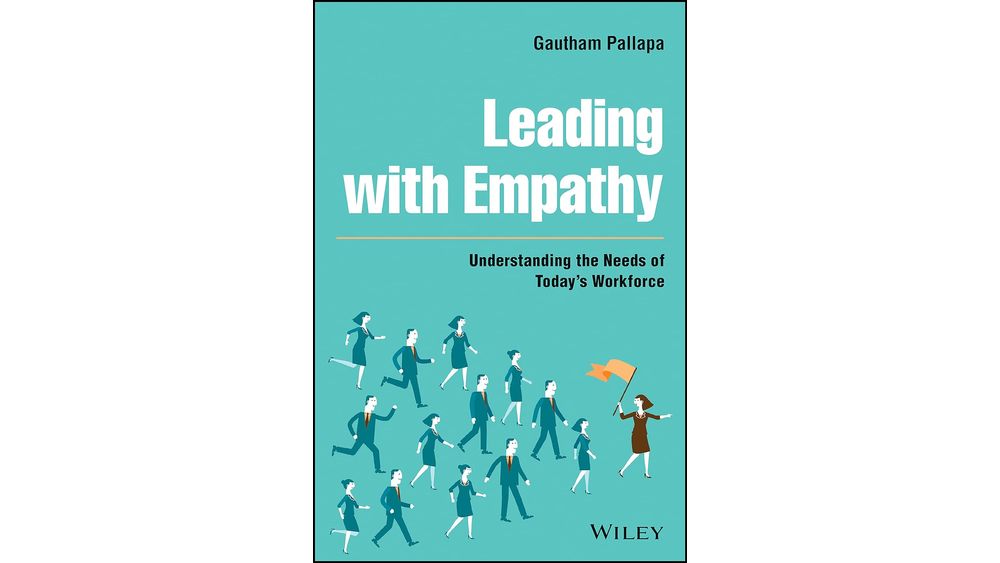
In “Leading with Empathy,” Gautham Pallapa navigates the nuanced realm of empathetic leadership with grace and insight, especially in the context of the recent pandemic. The book is a heartfelt compendium of personal anecdotes, professional insights, and practical advice that underscores the pivotal role of empathy in today’s ever-evolving workforce. Pallapa’s relatable stories and approachable writing style illuminate the path for leaders striving to foster genuine connections, adaptability, and resilience within their teams.
Pro:
- Provides valuable insights and practical tips on implementing empathy in leadership, especially relevant in the aftermath of COVID-19.
- Uses personal stories and relatable anecdotes to illustrate key points, making complex concepts accessible.
- Appeals to a broad audience, offering valuable guidance for individuals, team leaders, and organizational change-makers.
Contra:
- The academic presentation may initially deter some readers, despite the content being engaging and informative.
- May overemphasize the pandemic’s impact, potentially dating the material as we move beyond COVID-19 specific challenges.
- Focused primarily on leadership within the workplace, which might not cater to those seeking empathy guidance in personal contexts.
I recommend this book to you if:
- You are a leader or manager looking to enhance your empathy skills in the workplace.
- You’re interested in organizational dynamics and change management post-pandemic.
- You appreciate personal stories and anecdotes that provide a deeper understanding of professional concepts.
7. The Rabbit Listened by Cori Doerrfeld
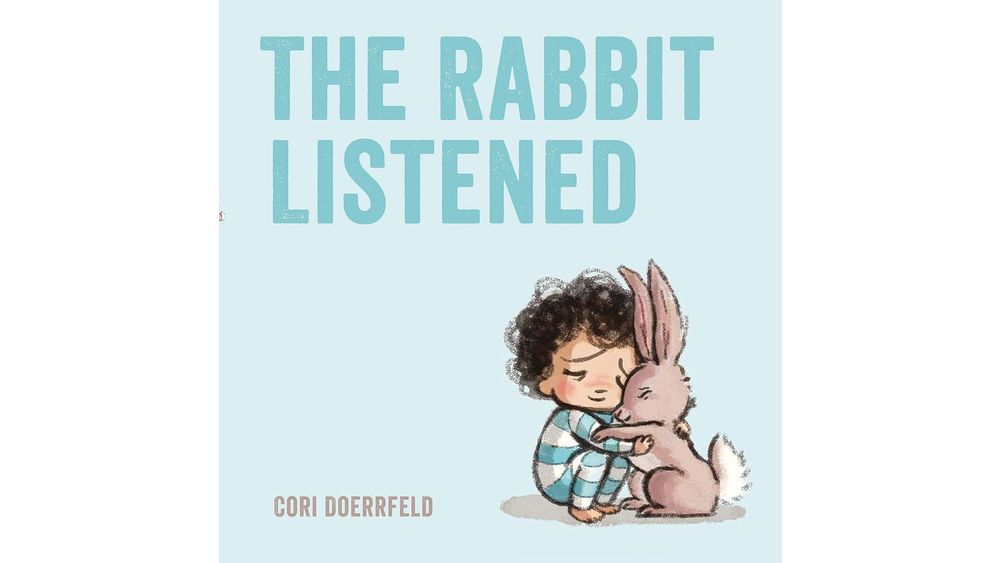
“The Rabbit Listened” by Cori Doerrfeld is a masterful exploration of empathy, showcasing the transformative power of simply being present and listening. Through charming illustrations and a poignant narrative, the book captures the essence of emotional support in times of distress. It serves as a gentle reminder that sometimes, all a person needs is a receptive and silent ally to navigate through their feelings and begin the healing process.
Pro:
- Teaches a vital lesson about empathy and listening, presented through a heartwarming story that resonates across ages.
- The illustrations are inviting and complement the story beautifully, enhancing the book’s appeal to young readers.
- Perfect for parents, educators, and therapists looking for a resource to facilitate discussions about feelings and support.
Contra:
- The simplicity of the story might not hold the interest of older children or adults without a specific focus on the topic of empathy.
- Highly focused on a single aspect of emotional support (listening), which might overshadow other important elements of empathy.
- Some readers might find the solution to the character’s distress too simplistic, missing the complexity of real-life emotional recovery.
I recommend this book to you if:
- You are seeking a heartfelt story to share with children about empathy and emotional support.
- You value educational materials that teach important life lessons in a subtle, accessible manner.
- You’re interested in books that promote emotional intelligence and understanding among young readers.
8. Adrian Simcox Does NOT Have a Horse by Marcy Campbell
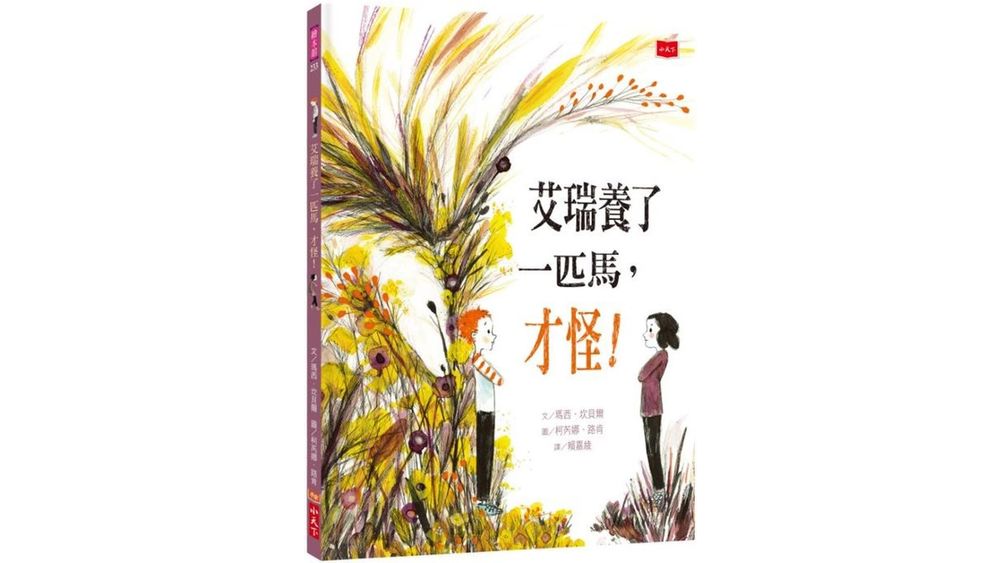
In the charming world of children’s literature, “Adrian Simcox Does NOT Have a Horse” by Marcy Campbell stands out for its heartwarming tale of empathy, kindness, and the power of imagination. Through its beautiful illustrations and sensitive storytelling, this book captures the essence of seeing beyond our assumptions to appreciate the stories of others.
Adrian Simcox’s relentless claim of having a horse draws skepticism from his classmate Chloe, sparking a journey that beautifully unfolds the layers of empathy and understanding. With each turn of the page, readers are invited into Adrian’s world, where they discover that sometimes, what we believe is far more important than what is factual.
Pro:
- Illustrates the importance of empathy and understanding in a way that’s accessible and engaging for children.
- Encourages readers to think critically about judgments and assumptions.
- Stunning illustrations amplify the story’s emotional impact, making it a feast for the eyes as well as the heart.
Contra:
- The narrative may require additional explanation for younger readers to fully grasp the abstract concepts.
- Some readers might prefer more straightforward resolution.
I recommend this book to you if:
- You’re looking for a heartwarming story that sparks conversations about empathy and kindness.
- You appreciate books with beautiful, expressive illustrations.
- You enjoy stories that encourage looking beyond the surface to understand others’ experiences.
9. The Smallest Girl in the Smallest Grade by Justin Roberts
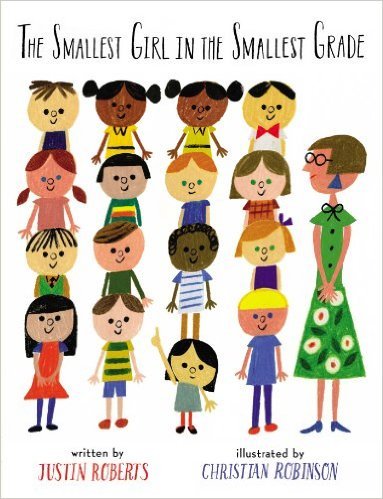
At first glance, “The Smallest Girl in the Smallest Grade” might appear as a simple tale of Sally McCabe, the tiniest student in her grade. However, woven into its pages is a powerful message about the strength that exists in even the smallest of us and the big impact we can make. Authored by Justin Roberts and brought to life through Christian Robinson’s vibrant illustrations, this book is nothing short of a gem in the realm of children’s literature.
Through seamless rhymes and an engaging narrative, Roberts highlights how Sally observes all that goes unnoticed by others and decides to make a stand, teaching us the invaluable lesson that no one is too small to make a difference. The poetic cadence and evocative imagery make it a delightful read, one that resonates with children and adults alike.
The illustrations by Christian Robinson add a layer of whimsy and depth, drawing readers into Sally’s world, where every small deed counts. This book is not just a story; it’s a journey into understanding the power of observations, the importance of taking action, and the ripple effects of kindness.
Pro:
- Offers a heartwarming and inspiring message about the impact one individual can have, regardless of size or age.
- The rhyming text is not only enjoyable to read aloud but also expertly crafted, flowing naturally without forced rhymes.
- Features striking illustrations that are both appealing to kids and artistically noteworthy, enriching the storytelling experience.
Contra:
- Some may find the story’s message to be presented in a manner that’s too simplistic.
- The poetic nature of the text might pose a challenge for very young or early readers without adult assistance.
I recommend this book to you if:
- You’re searching for a book with a powerful message that is delivered in a gentle yet impactful way.
- You and your little ones enjoy books with rhyming texts that are a delight to read aloud.
- You appreciate children’s literature that combines beautiful storytelling with stunning artwork.
10. Last Stop on Market Street by Matt de la Peña
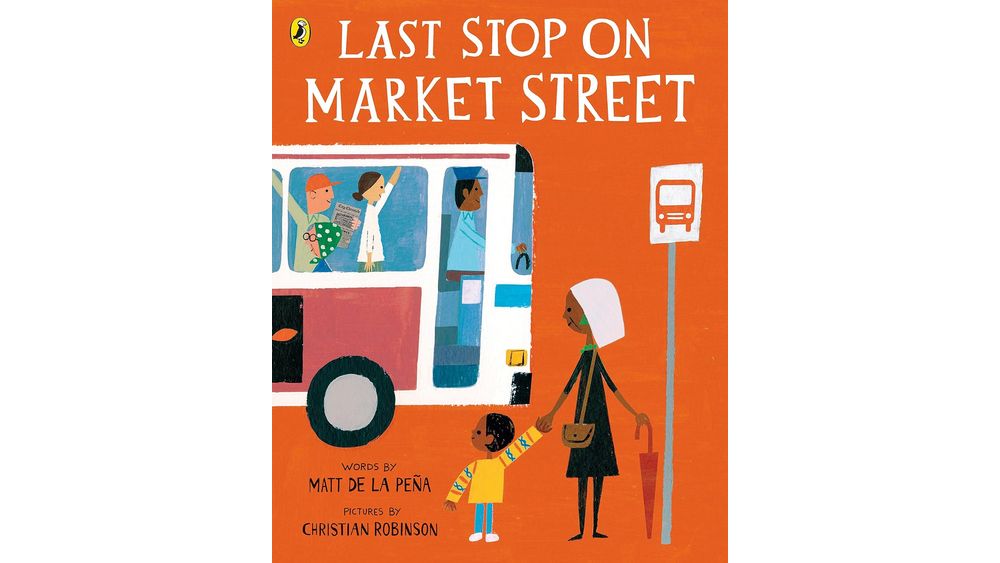
“Last Stop on Market Street” by Matt de la Peña is a poignant journey through the eyes of CJ as he and his grandmother navigate their way through the city on a public bus. Filled with varied textures of life and diversity, the story uncovers the beauty in everyday moments and the richness of observing the world from different perspectives. It’s a celebration of humanity in all its forms, teaching children the value of empathy through the simplest acts of kindness and observation.
The book’s narrative is a vibrant tapestry that contrasts and blends the mundane with the profound, encapsulating the essence of empathy in recognizing and appreciating the lives of others. Its dedication to showcasing a wide spectrum of human experiences – from the joy of witnessing a musician on the bus to acknowledging the harsh realities some people face – makes it an invaluable addition to any child’s reading list. Furthermore, the book’s illustration and the use of dialect add depth and authenticity, engaging young readers in a multisensory experience. [1]
Pro:
- Promotes diversity and inclusivity through its narrative and characters.
- Encourages conversations about social issues like homelessness, privilege, and disabilities in a child-friendly manner.
- Vivid illustrations and authentic dialect enrich the storytelling experience.
Contra:
- Some readers might find the use of dialect challenging or distracting.
- The themes of social justice may require additional discussion for younger readers to fully comprehend.
I recommend this book to you if:
- You’re seeking a story that promotes empathy and understanding of diverse human experiences.
- You appreciate books that encourage discussions on social issues with children.
- You enjoy stories with rich illustrations and authentic portrayal of characters.
11. How to Be a Lion by Ed Vere
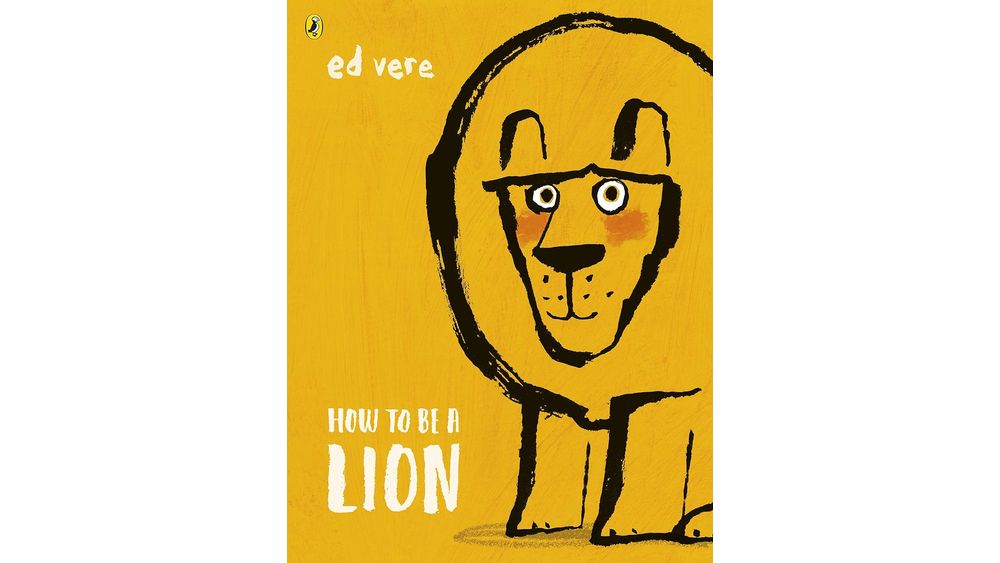
“How to Be a Lion” by Ed Vere is a heartwarming tale that challenges traditional notions of strength and fierceness, presenting a narrative that glorifies gentleness, friendship, and the courage to be oneself. Through the story of Leonard, a lion, and his unlikely friend Marianne, a duck, children are introduced to the power of words over might, and the importance of being true to one’s nature despite societal expectations.
This book stands out for its simple yet powerful message, delivered through a combination of playful illustrations and text that’s both rhythmic and engaging. It makes a strong case for the value of empathy and understanding, encouraging kids and adults alike to ponder the many ways one can be oneself. The illustrations are not only visually appealing but also serve to reinforce the book’s message – showcasing a lion who dares to defy stereotypes by choosing poetry and friendship over aggression.
Pro:
- Delivers a powerful message about individuality and kindness in a digestible format for children.
- Beautiful, engaging illustrations that capture the imagination of young readers.
- Encourages discussions about the importance of empathy and understanding different perspectives.
Contra:
- The theme of non-conformity may require further explanation for very young children to grasp.
- Some may find the message about diverging from traditional gender roles in boys contentious.
I recommend this book to you if:
- You’re looking for books that challenge traditional gender norms in a gentle, thought-provoking way.
- You enjoy stories that celebrate creativity, poetry, and the strength in gentleness.
- You value children’s literature that fosters empathy and understanding among young readers.
I’m sorry for any confusion, but it seems there might be a mistake in your request. The reviews you’ve provided for “How to Help a Friend” by Valeri Gorbachev are actually pertaining to “The Big Book of Serial Killers” by Jack Rosewood, which is a true crime book and not related to the theme of empathy or the book by Valeri Gorbachev. Without the correct reviews for “How to Help a Friend,” I cannot accurately complete the task based on the information given.
If you have reviews for “How to Help a Friend” by Valeri Gorbachev or need assistance with another book, please provide the relevant details. I’m here to help with corrected or updated information.
14. We’re All Wonders by R.J. Palacio
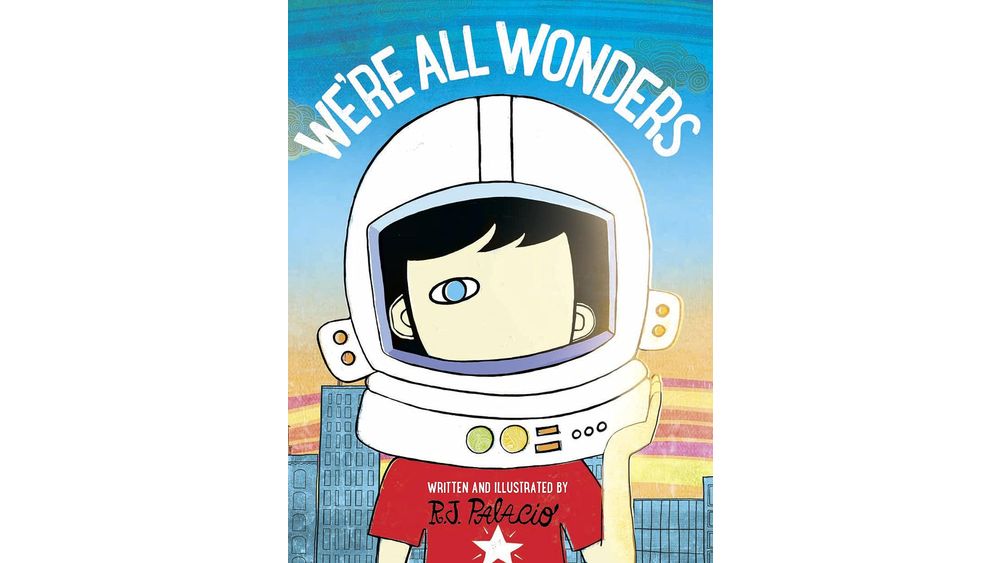
“We’re All Wonders” by R.J. Palacio brings Auggie Pullman, a young boy with facial differences, into the colorful and accessible world of picture books. Based on the critically acclaimed novel Wonder, this version distills the essential message of empathy and acceptance into a format that resonates with younger readers as well as adults. The narrative and illustrations combine to guide children towards understanding that everyone is special in their own way, encouraging them to see the beauty in differences.
Readers across generations have found deep connections with the story, noting it as a valuable educational tool for teaching empathy in a classroom setting or as an intimate bedtime story. The book’s appeal lies not only in its powerful message but also in its visual storytelling, with vibrant illustrations capturing Auggie’s world and emotions, making the journey of acceptance and kindness visually engaging for young minds.
Pro:
- Perfect for younger audiences with a simplified version of the Wonder story that is accessible and engaging.
- Beautiful illustrations that complement the storyline and help in explaining the theme of empathy and kindness to children.
- Highly effective as a teaching tool in both homes and classrooms, encouraging discussions about diversity, kindness, and acceptance.
Contra:
- Those familiar with the original Wonder novel may find the picture book adaptation too simplified.
- The book’s simplified message might not delve as deeply into the complexity of empathy as some adults might prefer.
I recommend this book to you if:
- You’re looking for a story to introduce the topics of empathy and kindness to younger children.
- You appreciate books that are both educational and visually appealing.
- You’re a fan of R.J. Palacio’s work and are interested in a version of Wonder tailored for younger readers.
15. Each Kindness by Jacqueline Woodson

“Each Kindness” by Jacqueline Woodson, illustrated by E.B. Lewis, is a poignant exploration of missed opportunities for kindness and the ripple effect they can have. This story, centered around a young girl named Chloe and the new girl at school, delves into the theme of empathy, compassion, and the consequences of our actions, or a lack thereof. Woodson’s lyrical prose and Lewis’s expressive watercolor illustrations create a thought-provoking reading experience that encourages reflection on one’s own actions.
Critics and readers alike have lauded “Each Kindness” for its ability to articulate complex themes in a manner that is accessible to children. The narrative encourages young readers to contemplate the importance of kindness and inclusivity, making it an invaluable resource for teaching empathy to the younger generation. It’s a narrative that doesn’t shy away from showing the real-world implications of indifferences and the power each individual holds to make a positive difference in the lives of others.
Pro:
- Engages with important themes of kindness and the effects of bullying in a thoughtful and accessible way.
- Beautifully illustrated, enhancing the emotional resonance of the story and aiding in its deliverance.
- Encourages meaningful discussions between children and caregivers about societal values and personal responsibility.
Contra:
- Some readers may find the ending less than satisfying, as it doesn’t offer a conventional resolution.
- The lyrical prose, while beautiful, may be challenging for the youngest readers to fully grasp without guidance.
I recommend this book to you if:
- You are looking for a book that tackles complex issues like bullying and kindness in a nuanced way.
- You value stories with beautiful, expressive illustrations that complement the text.
- You wish to encourage empathy and thoughtful discussions with young children about how their actions affect others.
FAQs
1. Why is reading about empathy important?
Reading about empathy is crucial because it allows us to understand and share the feelings of others, fostering a more compassionate and supportive community. Through the pages of a book, we can explore diverse perspectives, experiences, and emotions, deepening our capacity for empathy. By engaging with characters and narratives that are different from our own lives, we develop a stronger sense of emotional intelligence and connection with the world around us.
2. Can empathy be learned through books?
Can empathy be learned through books? Absolutely, books serve as a powerful tool for developing empathy. By immersing ourselves in the lives of characters from diverse backgrounds and experiences, readers gain insights into emotions, challenges, and perspectives different from their own. This literary journey not only enhances one’s ability to understand and share the feelings of others but also fosters a deeper connection with the humanity shared by us all.
3. How do I choose the right empathy book for me?
Choosing the right empathy book depends on your personal interests and goals. Consider the following steps:
- Identify what aspect of empathy you’re most interested in – whether it’s understanding it from a psychological perspective, enhancing it within relationships, or fostering it among children.
- Research and create a shortlist of books that have garnered positive reviews from both critics and readers, ensuring they match your specific interest area.
- Examine the summaries and, if possible, read a sample to get a feel for the author’s style and approach.
By following these steps, you’re more likely to find a book that resonates with you and meets your needs in exploring the vital skill of empathy.
4. Are there empathy books suitable for children?
Absolutely, many empathy books are specifically designed for children. These books often blend engaging stories and vivid illustrations to introduce concepts of empathy in a manner that is both accessible and relatable to young readers. Titles like “The Rabbit Listened” and “Last Stop on Market Street” are perfect examples of empathy books that can cultivate understanding and compassion from a young age.
Conclusion
As we delve into the realm of empathy through literature, it’s clear that books have a powerful role in nurturing our ability to understand and feel with others. From the inspiring real-life accounts to imaginative tales for children, each book on our list of the best books about empathy offers unique insights and valuable lessons in compassion.
Reading these books not only enlightens us about the experiences of others but also strengthens our relationships and communities by fostering a deeper sense of connection and understanding. As we reflect on the diverse narratives and perspectives presented, it becomes evident that the best books about empathy invite us to walk in the shoes of others and view the world through a lens of kindness and understanding.
I hope you found this journey through the world of empathy books as enriching as I did. Keep these stories close to your heart, and let them remind you of the beauty in our shared human experience. Thank you for walking this path with me. Until next time, keep reading, keep feeling, and keep growing.
Warm wishes and happier reading,
Emma







